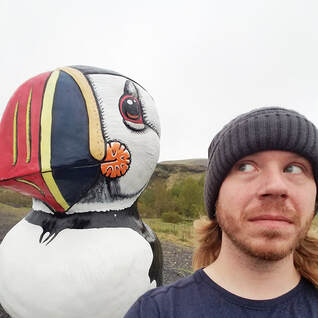
Tim Pierpont, Ph.D.
I have two main focuses in lab. One is elucidating the effects the effects of a naturalized immune system on cancer initiation, growth, spread, and treatment. This relies on a mouse model exposed to more realistic environmental challenges, compared to squeaky clean laboratory mice. The other focus is to investigate the potential immunotoxicology of perfluorooctanesulfonic acid (PFOS) and other perfluoroalkyls, commonly referred to as forever molecules. These are fluorinated molecules that can persist for years in our body but the biological impacts at current levels are still poorly understood.
I received a B.S. Delaware State University in 2011 and my Ph.D. at Cornell in 2017. My thesis work sought to understand the development of germ cell cancers and their unique sensitivity to genotoxic chemotherapies. After graduation, I worked to identify sensitivity markers for the B-cell lymphoma immunotherapy rituximab with Kristy Richards. In late 2019 he joined the August lab, hoping to utilize my cancer background and pursue exciting questions about the immune system’s interaction with cancer
For fun I enjoy yoga and hopefully post-pandemic traveling, but most of my free time is spent making things. From paintings to casting molten metals, from sewing to making robots, I enjoy creating things.
I have two main focuses in lab. One is elucidating the effects the effects of a naturalized immune system on cancer initiation, growth, spread, and treatment. This relies on a mouse model exposed to more realistic environmental challenges, compared to squeaky clean laboratory mice. The other focus is to investigate the potential immunotoxicology of perfluorooctanesulfonic acid (PFOS) and other perfluoroalkyls, commonly referred to as forever molecules. These are fluorinated molecules that can persist for years in our body but the biological impacts at current levels are still poorly understood.
I received a B.S. Delaware State University in 2011 and my Ph.D. at Cornell in 2017. My thesis work sought to understand the development of germ cell cancers and their unique sensitivity to genotoxic chemotherapies. After graduation, I worked to identify sensitivity markers for the B-cell lymphoma immunotherapy rituximab with Kristy Richards. In late 2019 he joined the August lab, hoping to utilize my cancer background and pursue exciting questions about the immune system’s interaction with cancer
For fun I enjoy yoga and hopefully post-pandemic traveling, but most of my free time is spent making things. From paintings to casting molten metals, from sewing to making robots, I enjoy creating things.
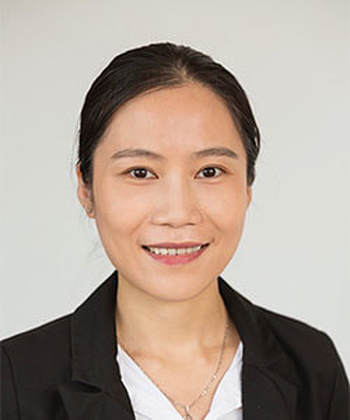
Weishan Huang, PhD- Adjunct Assistant Professor
I was a PhD student in the August lab investigating the role of ITK signaling in innate memory T cell and mast cell development and function. After my graduation in 2013, I continued and expanded my research in the August lab as a postdoctoral fellow to investigate the role of environmental cues and signaling transduction in T cell homeostasis, with a particular interest in signals that regulate the counterbalance between the effector and regulatory immune responses. In 2017, I joined the faculty of Cornell University as an Assistant Research Professor of Immunology. Starting from 2018, I assumed my faculty position at Louisiana Sate University, and remained affiliated with the August lab as an Adjunct Assistant Professor at Cornell. To read more about what I have learned from and developed in the August lab, please visit my lab website: https://weishanhuanglab.org/.
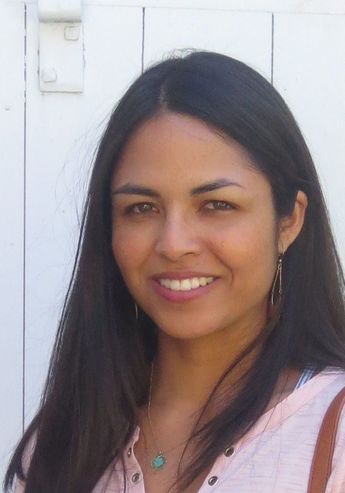
Luisa Torres, PhD. Postdoctoral Researcher
@luisatorresduq
I graduated with a PhD in Pharmacology from Stony Brook University, where I studied the role of microglia in the healthy mouse brain as well as their role during inflammation. After completing my graduate studies, I came to Cornell University to Dr Margaret Bynoe’s lab where I studied the effect of chronic infection with Toxoplasma gondii on the development of Alzheimer's disease. I am currently in the August lab studying the effect of perfluorinated compounds on the mouse immune system.
I am passionate about science communication and outreach. In my spare time I write for the Science@CornellVet blog and the ASPET Neuropharmacology blog.
@luisatorresduq
I graduated with a PhD in Pharmacology from Stony Brook University, where I studied the role of microglia in the healthy mouse brain as well as their role during inflammation. After completing my graduate studies, I came to Cornell University to Dr Margaret Bynoe’s lab where I studied the effect of chronic infection with Toxoplasma gondii on the development of Alzheimer's disease. I am currently in the August lab studying the effect of perfluorinated compounds on the mouse immune system.
I am passionate about science communication and outreach. In my spare time I write for the Science@CornellVet blog and the ASPET Neuropharmacology blog.
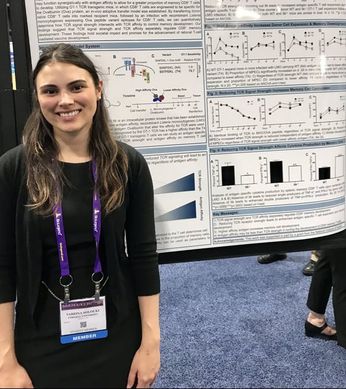
Sabrina Solouki, Graduate Student, Biological & Biomedical Sciences Graduate Field
Fascinated by the complexity of the immune system and the various defense mechanism’s in place to fight off pathogens, my research focuses on a range of topics that integrate immunology and microbiology. My primary thesis work focuses on the role of antigen affinity and TCR signal strength in the development of CD8+ memory T cells.
While passionate about research, I am also very interested in intellectual property and science policy. Ultimately, my goal is to use the skills I have gained in my doctoral program to jumpstart a career in patent law and policy.
Fascinated by the complexity of the immune system and the various defense mechanism’s in place to fight off pathogens, my research focuses on a range of topics that integrate immunology and microbiology. My primary thesis work focuses on the role of antigen affinity and TCR signal strength in the development of CD8+ memory T cells.
While passionate about research, I am also very interested in intellectual property and science policy. Ultimately, my goal is to use the skills I have gained in my doctoral program to jumpstart a career in patent law and policy.

Jessica Elmore, Graduate Student, Biological & Biomedical Sciences Graduate Field
I am a fourth year graduate student working on biomedical engineering approaches that involves the use of hydrogels to reduce inflammation. I also study the dynamics of regulatory T cells and Th17 cells in lung infection with S. rectivirgula.
I am a fourth year graduate student working on biomedical engineering approaches that involves the use of hydrogels to reduce inflammation. I also study the dynamics of regulatory T cells and Th17 cells in lung infection with S. rectivirgula.
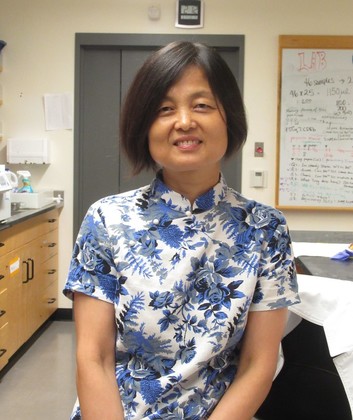
Ling Zhang, Research Technician
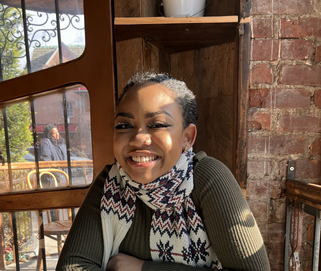
Saloma Ayoub
I am a biology student in the class of 2022 at the college of agriculture and life sciences. I joined the August lab in August of 2021. I knew I was meant to be a biologist when I learned about physiology with topics including cancer immune therapies and signaling in highschool.
I am a biology student in the class of 2022 at the college of agriculture and life sciences. I joined the August lab in August of 2021. I knew I was meant to be a biologist when I learned about physiology with topics including cancer immune therapies and signaling in highschool.